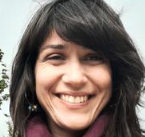We were honored to have Maria Guerreiro and Sarah Lippincott of Dryad as our guest speakers in this session, and they shared practical insights into effective data management, promoting transparency and research collaboration across Africa.
Watch the recording
The slides are available at https://africarxiv.ubuntunet.net/items/7320
Session summary
The Dryad platform ensures that data shared through its repository meets rigorous standards for research and educational reuse by closely collaborating with researchers to curate datasets thoroughly. This involves verifying completeness, clarity, and appropriate description under open licenses, primarily the Creative Commons Zero (CC0) waiver, which allows unrestricted reuse. Dryad’s curation team reviews submissions to ensure compliance with global FAIR (Findable, Accessible, Interoperable, and Reusable) principles, helping future-proof datasets against evolving technological changes. Researchers are guided on proper metadata inclusion, including connections to funders, institutions via ROR identifiers, and associated publications to enhance discoverability and attribution.
Dryad has successfully facilitated research collaborations by partnering with journals and institutions, enabling researchers to deposit data alongside their publications. This openness fosters discovery, follow-up studies, joint projects, and sometimes opens funding opportunities based on openly shared datasets. Challenges such as uncertainty in data documentation, licensing complexities, and fear of data misuse are addressed by Dryad’s detailed submission guidance and professional curation that eases these concerns and makes data sharing more accessible.
For long-term sustainability, Dryad partners with preservation services like CLOCKSS to ensure data archiving, continuously updates its platform to meet new standards, and collaborates with institutions, funders (e.g., NIH, Wellcome Trust), and publishers for financial and policy support. Beyond tracking downloads and views, Dryad also monitors dataset impact through citation tracking with services like DataCite, encouraging proper dataset citation to capture reuse more comprehensively.
African researchers and institutions can benefit by learning best practices for data documentation, gaining greater research visibility internationally, fostering collaborations, overcoming data management challenges with curator support, contributing to global open science initiatives, and aligning with funder policies, thereby enhancing research impact and innovation continent-wide.
Speakers’ profiles

Maria Guerreiro
Maria Guerreiro is the Head of Partnership Development at Dryad.
Maria is an open science enthusiast who enjoys working collaboratively with researchers and other stakeholders in scholarly communication to drive positive change. She is Head of Partnership Development at Dryad, where she leads the partnership recruitment programme with publishers, scholarly societies, and research institutions. Prior to Dryad, Maria spent a decade in journal publishing, primarily at eLife, where she was Head of Journal Development and worked directly with scientists, research organizations, and funding agencies in the biomedical and life sciences in initiatives to drive growth, foster community engagement, and promote best practices in peer review and scientific publishing.
LinkedIn: mariajoaoguerreiro/
ORCID:0000-0003-0010-6895

Sarah Lippincott
Sarah Lippincott is a librarian and library consultant with a decade of experience supporting open access, digital scholarship, and scholarly communications through strategic planning, research, service design, facilitation, and communications work.
As Head of Community Engagement at Dryad, Sarah works with institutions, funders, and researchers to increase awareness of and engagement with data sharing and data reuse. She received her MLS from University of North Carolina-Chapel Hill, and prior to joining Dryad, she worked in a variety of roles within and adjacent to libraries.
Sarah started her career as the founding Program Director for the Library Publishing Coalition and went on to coordinate assessment, user experience, and strategic planning activities for a major research library; led strategic consulting services for a digital services agency specializing in open source web development for the cultural heritage sector; and consulted on projects for the Educopia Institute, the Next Generation Library Publishing project (NGLP), the Library Publishing Coalition, Candid, the Preservation of Electronic Government Information (PEGI) Project, the Association of Research Libraries (ARL), and the Digital Public Library of America (DPLA).
LinkedIn: /sarahklippincott/
ORCID: 0000-0002-5700-5844
Related resources
- DRYAD website: https://datadryad.org/stash
About the webinar series
This webinar was co-organized by UbuntuNet Alliance and Access 2 Perspectives as part of the ORCID Global Participation Program.
ORCID is the persistent identifier for researchers to share their accomplishments (research articles, data, etc with funding agencies, publishers, data repositories, and other research workflows.
AfricArXiv is a community-led digital archive for African research communication. By enhancing the visibility of African research, we enable discoverability and collaboration opportunities for African scientists on the continent as well as globally.
